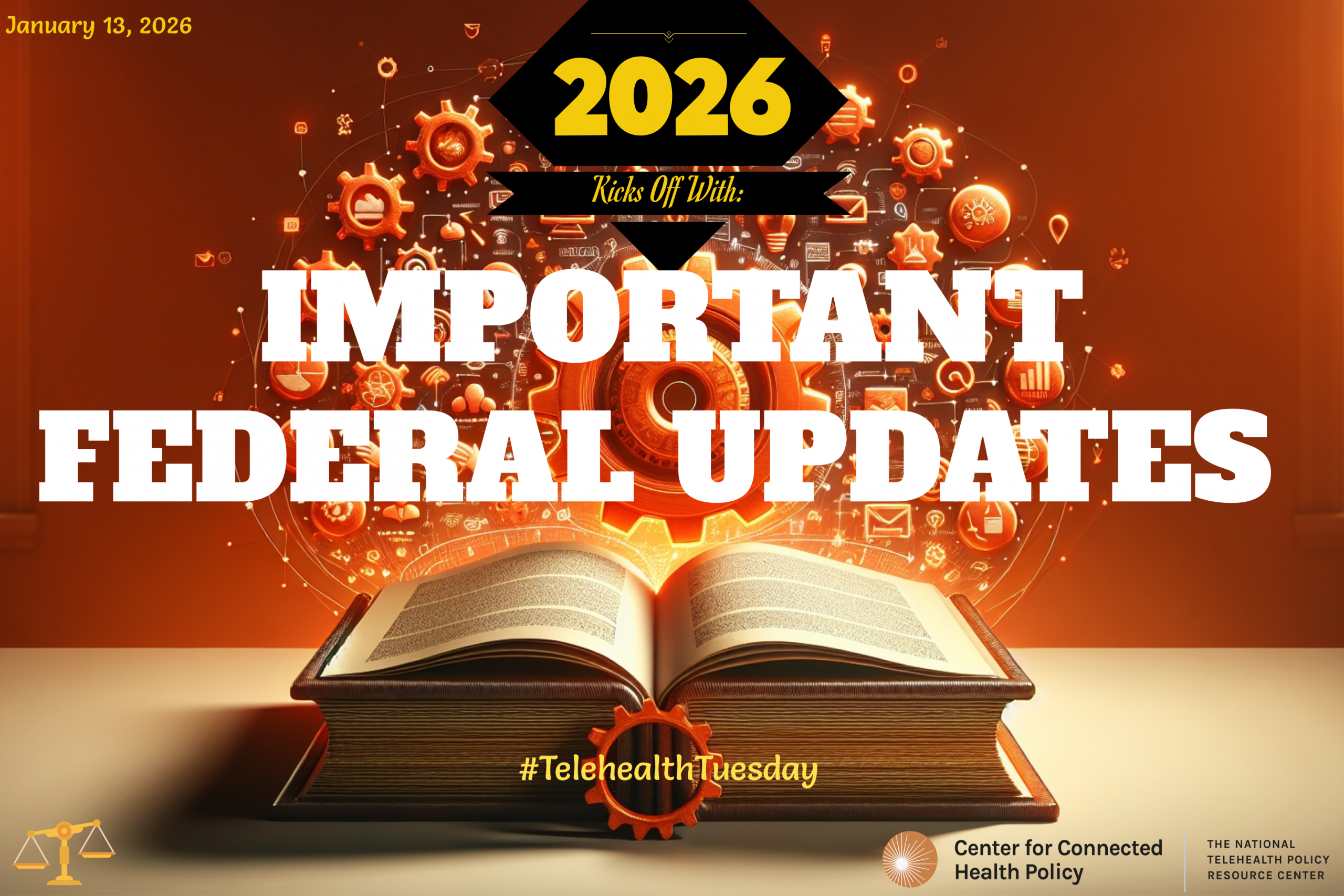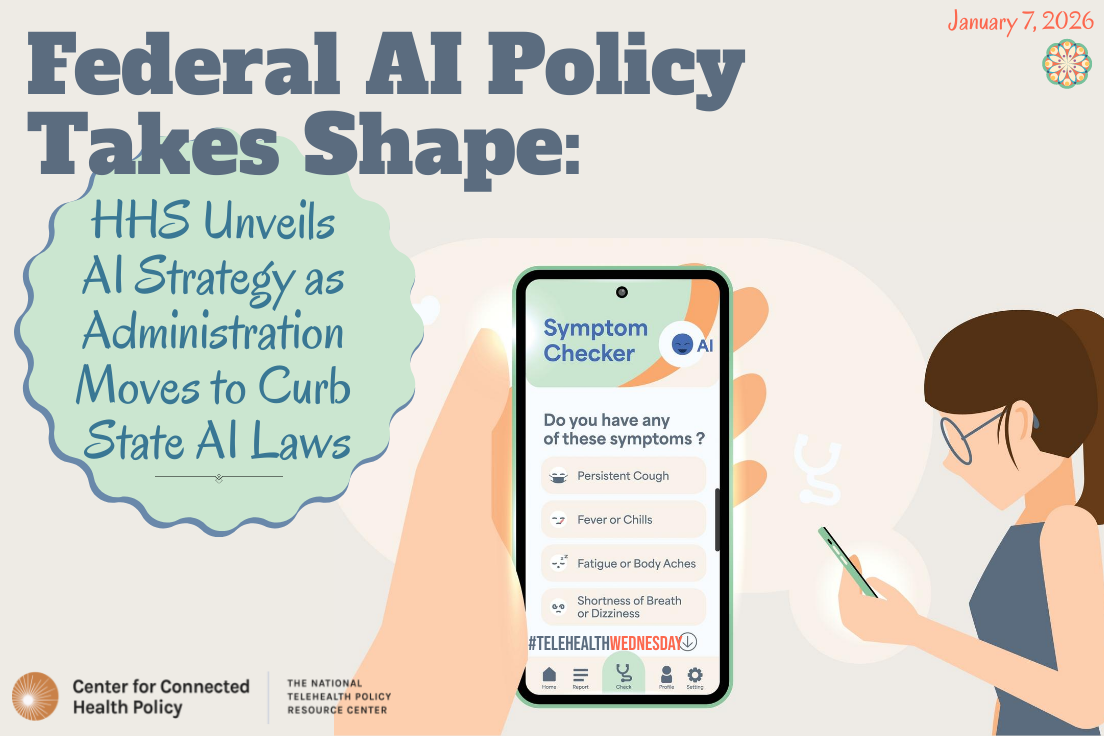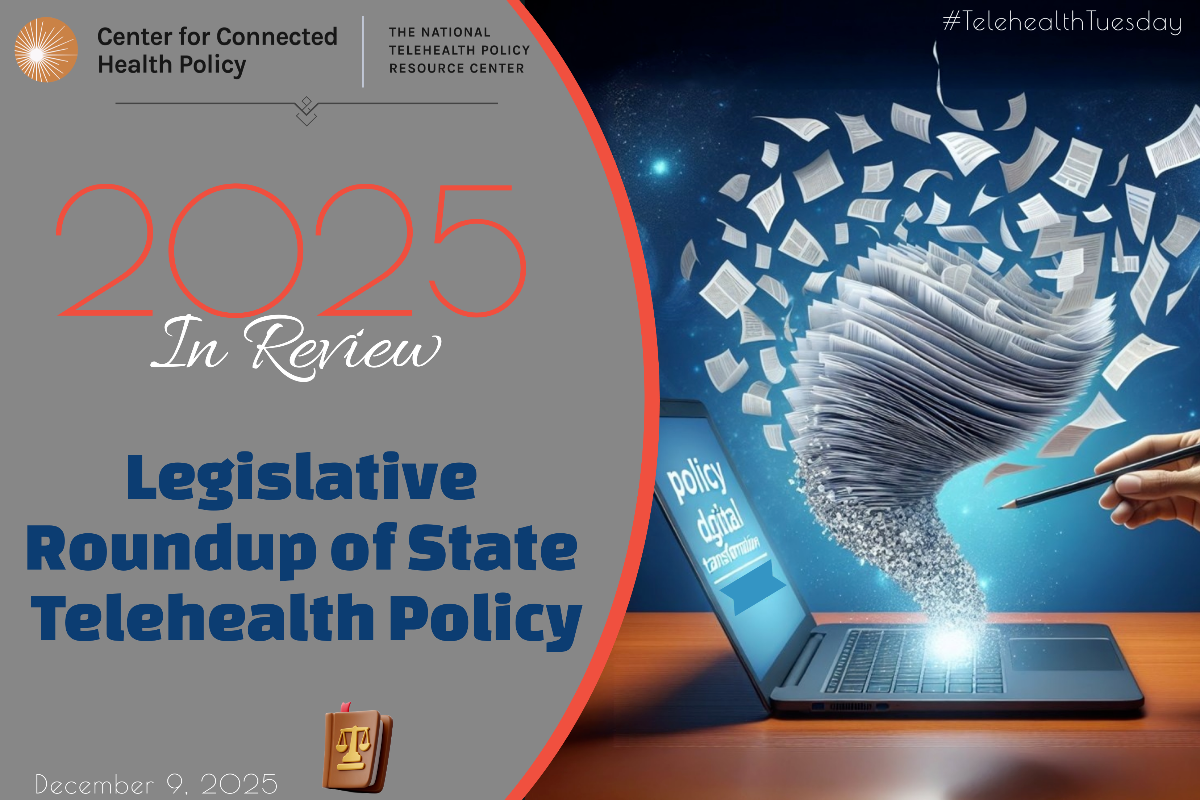
As 2025 begins to wind down, we, at CCHP, like to take a look back and make note of the major changes that have occurred in telehealth policy throughout the year. Upon reflection, we again find ourselves in a very similar place to where we were in December of 2024, when the Medicare telehealth waivers were set to expire on March 30, 2025. This year again leaves us in a state of uncertainty as, unless further action is taken, the Medicare telehealth waivers will now expire on January 30, 2026. Readers may unsurprisingly feel some anxiety around this rapidly approaching deadline, as the last time we were this close to an expiration date, the waivers actually expired and we found ourselves in the midst of the longest federal government shutdown in history, as well as a reversion back to the much more restrictive permanent Medicare telehealth policy. In the deal that ultimately ended the shutdown, the Medicare telehealth waivers were again extended, this time to January 30, 2026.





